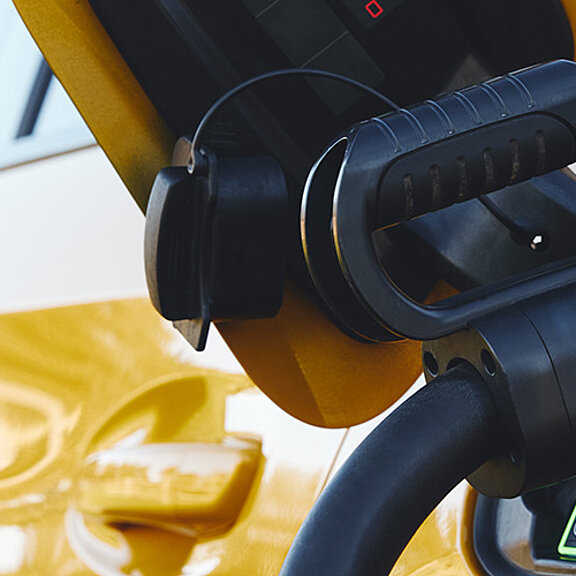

Derived technical requirements for charging stations (<50 kW) for public operation. Information on the Alternative Fuels Infrastructure Regulation (AFIR) - Derived technical requirements for charging stations (<50 kW) for public operation
We would like to inform you about the new derived technical requirements in accordance with the Alternative Fuels Infrastructure Regulation (AFIR), which comes into force on 13 April 2024. This EU regulation concerns, among other things, the operation and development of public charging infrastructure that will be put into operation from that date.
In Article 5 of the AFIR, the European Commission has created a binding basis for creating a nationwide public charging infrastructure that supports the transition to zero-emission vehicles and promotes the EU's climate neutrality target by 2050. This raises important questions for charging infrastructure operators and the charging stations they use: What does this regulation mean for them and what impact will it have? We would like to give you some initial pointers.
The three most important points for the technical equipment of publicly deployed charging stations with a design-related output of less than 50 kW are as follows:
No obligation for a payment terminal for "ad hoc" or spot charging
Non-agreement-based charging is referred to as ad hoc charging of vehicles. The AFIR stipulates that ad hoc charging must be offered at all public charging points. For payment or billing, NO credit card reader or payment terminal must be installed in the device or made available to the user at the location. The AFIR allows, for example, the payment process to be based on a web-based solution provided by the operator. The regulation does not stipulate that the device used for payment must read physical payment cards.
No obligation for price labelling via a display
The mandatory price labelling for this payment method does not have to take place at the charging station itself. This can be done within a web-based solution provided by the operator. Alternatively, the operator can also indicate its charging tariffs on a sign or sticker at the charging station. Note: The latter is certainly a simpler and cheaper solution in the first step. However, it is only an interim solution, especially in view of the desire to be able to adjust prices more dynamically.
No obligation to install a display for showing a dynamic QR code
The security of the payment process for an ad hoc charge must be guaranteed by the payment service provider and must always comply with the requirements of the European Payment Services Directive PSD2. The payment process is regulated throughout the EU and complies with banking security standards. Payment service providers already active in the EU have therefore had to support this for some time. No dynamic QR code is required or prescribed for this. A printed or otherwise applied static QR code is sufficient. The interpretation that "static" QR codes are permitted is confirmed by a letter from the Federal Ministry for Digital and Transport Affairs (BMDV). The BMDV confirms that the Federal Government, the EU Commission and the EU Member States share this interpretation.
Charging stations with Bender charge controllers are generally suitable for enabling AFIR-compliant operation for operators of public charging infrastructure (<50 kW).
Supplementary information
Connection between the EU AFIR and the German LSV. The Charging Station Ordinance (LSV), including its amendment from 2021, regulates the technical requirements for the installation and operation of public charging stations in Germany and is the national implementation of the EU's AFID Directive from 2014. As the successor to the AFID, the AFIR from 2023 is an EU regulation and replaces the directive on which the LSV is based. It does not have to be transposed into a regulation by national law. In this context, the German LSV is subordinate to the AFIR. We expect the German government to resolve possible contradictions between the AFIR and the LSV by amending the law in order to achieve clarity here.